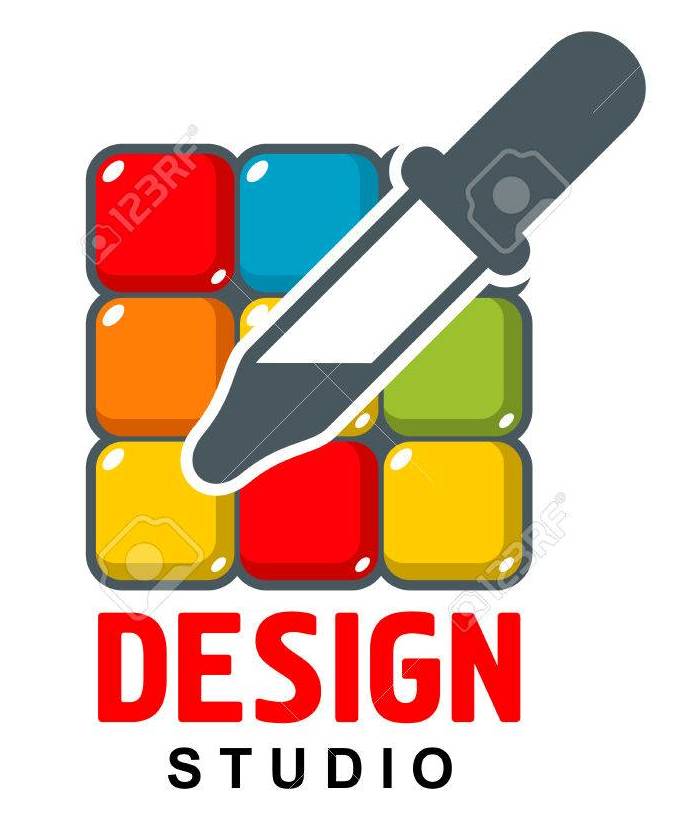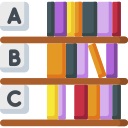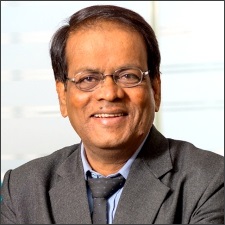
MMU - Maharishi Markandeshwar University - Institute of Physiotherapy and Rehabilitation
M.M.I.P.R is one of the prestigious Institutes in the field of Physiotherapy that was founded in 2001 in the state of Haryana and is an important word in the Maharishi Markandeshwar's lexicon (Deemed to be University). The MM Institute of Physiotherapy and Rehabilitation educates efficient professionals in the art of relieving human pain and suffering by utilizing evidence-based practice in the field of physiotherapy, the most advanced skill, and instruments from the most advanced quality production centres.
The institute is fully equipped with cutting-edge research labs and cutting-edge research equipment. The institute also has a departmental library that is fully equipped with Internet access, journals, archives, and surplus books for academic advancement. The Indian Association of Physiotherapists has accredited the institute.
Courses
Highlights
- Manual Therapy is a subspecialty of Musculoskeletal or Orthopedic Physiotherapy that focuses on using hands-on techniques to evaluate and treat painful conditions using a tissue-specific approach. Manual therapy is also widely accepted as a stand-alone method for treating musculoskeletal dysfunctions through the use of articular (joints), myofascial (muscles), and neural techniques (nerves).
- The Institute excels at producing fully trained physiotherapists to meet the global market's growing demand.
- Students' clinical skills are developed through placements in our fully equipped 815-bed M. M. Medical College & Hospital.
- In a short period of time, the Institute has achieved the status of a Centre of Excellence by introducing Post Graduate MPT courses in five specialties: Musculoskeletal Disorders, Neurological Disorders, Cardio-Thoracic Disorders, Sports Injuries, and Pediatric Disorders. Our institute launched a PhD in Physiotherapy programme in 2016.
Maharishi Markandeshwar University (MMU Mullana or MMDU) was founded in 1993 as a Deemed-to-be-University. It has been approved by the University Grants Commission (UGC) and is NAAC accredited with a grade of 'A'. In addition, the Deemed University has two other campuses in Karnal and Solan.
MMU Mullana has a 108-acre campus with all of the necessary amenities for students. Separate hostels for boys and girls, a healthcare centre, a residential sector for more than 500 faculty and staff members, auditoriums and seminar halls, a library with 1,75,000 books and more than 12,000 print and e-journals, a sports ground, and other amenities are available. In addition, the Deemed University provides adequate infrastructure facilities to support a variety of research activities. MMDU has filed 76 patents to date, as well as 81 copyrights and 8,000 publications.
Quick Facts
- 150 acres of Wifi enabled campus
- 50,000+ success stories
- 93% overall placement
- 564+ prime recruiters
- 42 lacks the highest package offered
Research
- 400+ citations
- 350+ publications
- 35+ patents/copyright
- 55+ workshops/seminars/guest lectures
Placement
- 1763+ offer generated
- 42 lakhs
- 6 lakhs average salary offered
Top Recruiters
- Infosys
- Microsoft
- Accolite Digital
- Deloitte
- 3 Pillar Global
- Ginger
- Cognizant
- Wipro
- Caelius Consulting inc.
- Global Logic
- Daffodil
- Net solutions
- Cloud certitude
- Grazitti interactive
- Eclerx
- Capgemini
- IBM
- Edifecs
- Accenture
- Gslab
- Libsys inc.
- Infogain
- Nineleaps
- Tech Mahindra
- Extramarks
- Persistent
Key Feature
- Provision of cutting-edge research, clinical expertise, and advanced teaching methods.
- Outfitted with cutting-edge world-class research labs and ICT-enabled classrooms.
- A full-fledged departmental library with internet access, journals, archives, and surplus books for academic advancement.
- Partnerships with research institutions and rehabilitation societies.
- World-class faculty and a mentoring programme to help students grow as individuals.
- Ongoing Workshops, Seminars, and Development Programs to address global needs.
- Regular publication of research papers in indexed journals such as PubMed, Web of Science, and Scopus.
Recognitions & Approvals
- University Grants Commission (UGC)
- Indian Association of Physiotherapists (IAP)
- Haryana State Council for Physiotherapy
Facilities
- Prosthetics and Orthotics Lab
- Sports Physiotherapy Research Lab
- Biomechanics & Kinesiology Lab
- Cardiopulmonary Physiotherapy Research Lab
- Musculoskeletal Physiotherapy Research Lab
- Neurological Physiotherapy Research Lab
- Pediatric Physiotherapy Research Lab
Research Outcome
- Total number of SCOPUS/Pub Med/WoS indexed publications: 63
- Cumulative Impact Factor (2019 Journal Citation Reports® (Clarivate Analytics, 2020) IF: 21.323
- H index = 14
- Publication = 121
- Cumulative IF = 78.531
- Highest impact factor = 11.91
- i10 index = 13
- Copyright = Registered : 105 and Filed : 25
- Published patent = 04
- Filed patent = 05
- Publications having more than 3 IF = 07
BPT- Bachelor of Physiotherapy
DURATION : 4 YRS. (8 SEMESTERS) AND 6 MONTHS COMPULSORY ROTATORY INTERNSHIP
The Bachelor of Physiotherapy programme at MM (DU), Mullana has been designed to meet international standards and is accredited by the Indian Association of Physiotherapists (IAP) and the Haryana State Council for Physiotherapy (HSCP). The programme is taught by qualified faculty and includes both academic and clinical training in the field of physiotherapy. The curriculum includes basic medical sciences, the study of various human body disorders, basic and advanced principles of physiotherapy, assessment, and physical therapy-based treatment approaches. The modes of delivery place an emphasis on evidence-based clinical practises.
PROGRAMME OBJECTIVE
- To provide patient-centered self-directed and interdisciplinary learning.
- Using a well-designed curriculum, to develop highly qualified and skilled professionals
- To impart knowledge by integrating clinical and basic sciences in a modern, well-equipped environment.
PROGRAMME OUTCOMES
- Demonstrating a sufficient understanding of physiotherapy knowledge, clinical decision-making ability, and the ability to provide appropriate patient care.
- Improving the ability to collect a patient's history, perform relevant clinical assessments, and frame appropriate electrotherapeutic and exercise therapy management.
- Improving communication with patients, family, colleagues, and students.
- Using the profession to promote health education and improved quality of life.
Curriculum
|
1st Year |
2nd Year |
3RD YEAR |
4TH YEAR |
|
1ST SEMESTER |
3RD SEMESTER |
5TH SEMESTER |
7TH SEMESTER |
|
|
|
|
|
2ND SEMESTER |
4TH SEMESTER |
6TH SEMESTER |
8TH SEMESTER |
|
|
|
|
ELIGIBILITY CRITERIA
A person who is 17 years old or older on December 31st of the year of admission and has passed one of the following examinations is eligible to enrol in the first year B.P.T Course: The candidate must have passed the qualifying XII STD/ HSE examination (for equipment) with English as a subject and a minimum of 50% marks in science with Physics, Chemistry, and Biology as mandatory subjects (45% in the case of the reserved category) from a recognised Board/University.
Fees
|
Courses |
Fees |
|
BPT Bachelor of Physiotherapy |
INR 82000 PA |
MPT (Masters of Physiotherapy)
DURATION: 2 YRS. (4 SEMESTERS)
The Master of Physiotherapy programme at MM(DU), Mullana is designed to meet international standards and has been approved by the Indian Association of Physiotherapists (IAP) and the Haryana State Council for Physiotherapy (HSCP). The programme is taught by qualified faculty and includes both academic and clinical training in the field of physiotherapy. Basic medical sciences, the study of various disorders of the human body, knowledge of research and biostatistics, basic and advanced principles of physiotherapy, assessment, and physical therapy-based treatment approaches are all included in the curriculum. The modes of delivery place an emphasis on evidence-based clinical practices.
PROGRAMME OBJECTIVE
- Students will have the opportunity to develop intelligent decision-making skills upon completion of the course. It also allows them to hone their communication skills by articulating evidence-based knowledge and clinical knowledge for patient assessment and diagnosis. It provides students with the opportunity to apply their research and professional knowledge to novel situations.
- To provide a thorough understanding of motion kinematics and kinetics.
- To have a thorough understanding of presenting supporting evidence, conducting research, and providing an understanding of research models and biostatistics.
PROGRAMME OUTCOMES (POS)
- Improve the fundamentals of assessment and diagnosis and apply this knowledge in clinical practice.
- Analysis and evaluation of patient conditions, as well as accurate diagnosis.
- Students will be able to describe the research design and the use of various methods to analyze data collected in order to conduct and complete the research.
- Learn about cardiopulmonary, neurological, musculoskeletal, paediatric, and sports injury conditions that can be used in clinical practice.
|
1st Year |
2nd year |
|
1st Semester |
3rd semester |
|
|
|
2nd Semester |
4th semester |
|
|
Elective course
|
ELIGIBILITY CRITERIA
Time span: 2 years (4 semesters) Candidates must have a Bachelor of Physiotherapy degree with at least 50% aggregate marks from a recognized university.
Faculty (13)
';- Phd (5)
Facilities

AC Classrooms

Auditorium

Banks Facilities

Cafeteria

Convenience Store

Design Studio

Gym

Hostel

Labs

Ransomware by ./M789

Shuttle Service

Sports Complex

Wi-Fi Campus
Gallery







Events
Other Details
- Awards: Best University of the Year-North
- Collaboration(s): ASIC, UK
Contact
MAHARISHI MARKANDESHWAR (DEEMED TO BE UNIVERSITY) Mullana, Ambala (Haryana)
info@mmumullana.org
-
PGDM-Post Graduate Diploma in Management
Total Fee: INR 745000
-
B.Com Bachelor of Commerce
Total Fee: INR 240000
-
PGDM-Post Graduate Diploma in Management
Total Fee: INR 745000
-
B.Com Bachelor of Commerce
Total Fee: INR 240000
-
PGDM-Post Graduate Diploma in Management
Total Fee: INR 745000
-
B.Com Bachelor of Commerce
Total Fee: INR 240000
-
PGDM-Post Graduate Diploma in Management
Total Fee: INR 745000
-
B.Com Bachelor of Commerce
Total Fee: INR 240000
Highlights
- International Institute of Business Studies (IIBS) is an AICTE Approved college which is recognized by Ministry of HRD, Government of Indias
- IIBS rated India’s No.1 emerging B-School in placement by Samaja Parivarthana
- Faculty of IIBS consists of experienced corporate faculty with 65% Ph.D. holders
- Ranked 2nd among 'Top 10 Southern B Schools' by Silicon India, 2017
- Ranked 3rd in Placement among the Best B-School in India 2017 by Silicon India
Modern Facilities
- Smart Classroom: IIBS provides fully equipped classroom with air-conditioned, projectors, remote controlled LCD and high speed connected computers and cordless microphones
- Library: It is fully equipped by highly information recourses like latest periodicals, reference texts, management text books, national and international journals and DVDs and well organized
- Digital Library: Students of IIBS can be access the digital library through any computers by using their ID and password
- Auditorium: IIBS auditorium is fully furnished and laced with all modern devices to more impactful view
- Hostel: IIBS provides hostel accommodation for boys and girls with mesh facility
Conducting IIMs have been changed the pattern of the CAT exams several times over the years. It is extremely beneficial for the aspirants to know the CAT paper pattern as it helps in preparation and the aspirants can prepare according to the pattern and weightage of the topics.
Overview of the Exam Pattern of CAT 2020
| Mode of the Exam | Online Only |
|---|---|
| Total number of Questions | 100 |
| Total Marks | 300 |
| Duration of the Examination | 3 hours (180 minutes) |
| Sectional Division of the Paper | 3 sections |
| Types of the Questions | Both MCQs and Non MCQs |
| Marking Scheme |
For Correct Answers → +3 marks For Incorrect Answers → -1 mark For Unattempted Questions → No marks |
| Name of the Sections |
1. Verbal Ability & Reading Comprehension 2. Logical Reasoning & Data Interpretation 3. Quantitative Aptitude |
This Exam is conducted once in a year usually in the month of November on online mode and it is expected that this year this exam will held in the last week of November. The question paper contains 100 questions to be solved in 3 hours. 3 marks are assigned for correct answer and 1 mark is deducted for wrong answer in CAT Exam. English is the only medium of answering the questions. Each question consists of four choices from which only one is correct, candidates have to select the right answer from the given options.
CAT question paper consists of three sections divided as
- 1. Verbal and Reading Comprehension (VARC)
- 2. Data Interpretation & Logical Reasoning (DI & LR)
- 3. Quantitative Ability (QA)
Overview of the Exam Pattern of CAT 2020
| Section’s Name | Number of Questions | Duration (in mins) |
|---|---|---|
| Verbal and Reading Comprehension (VARC) | 34 | 60 |
| Data Interpretation & Logical Reasoning (DI & LR) |
VA → 10 Questions RC → 24 Questions |
60 |
| Quantitative Ability (QA) |
DI → 16 Questions LR → 16 Questions |
60 |
| Total | 100 | 180 minutes (3hours) |
Verbal Ability and Reading Comprehension Section
This section is a combination of two sub-sections namely Verbal Ability (VA) and Reading Comprehension (RC). The main focus of this section is on the English language skills of the candidates and how they understand and elucidate the paragraphs and Passages. This section consists of 34 questions, 10 questions of Verbal Ability and 24 questions of Reading Comprehension. Verbal ability sub-section consists of questions related to Para-jumbles, Summary based questions, Sentence Correction and Completion. The other sub-section, Reading Comprehension is based on the questions related to Vocabulary, title etc.
Logical Reasoning & Data Interpretation Section
This section is also divided into two sub-sections, one is Logical Reasoning (LR) and other is Data Interpretation (DI). A total of 32 questions are asked in this section, 16 questions from both the sub-section. LR section contains solvable questions generally from the topics like inequalities, symbol operations, direction sense test etc. On the other hand DI section is a little difficult and time-consuming section as it consists of several confusing data case lets questions. This section contains tricky question and a little mistake in understanding the case lets can lead the candidates to attempt all the questions from a particular set incorrectly.
Quantitative Aptitude Section
This section is a standalone section which comprises only numerical questions from different topics of Math. A total of 34 questions are asked in this section. This section contains questions based on Basic Arithmetic, Number System, Geometry, Algebra, Modern Math etc. The questions in this section ranges from easy to moderately high and can be answered easily with proper practice of the syllabus of Quantitative Aptitude.

|
Prof. Prabhakar H
B.Sc., PG in HRD, PG in Training & Development |

|
Prof. Prabhakar H
B.Sc., PG in HRD, PG in Training & Development |

|
Prof. Prabhakar H
B.Sc., PG in HRD, PG in Training & Development |

|
Prof. Prabhakar H
B.Sc., PG in HRD, PG in Training & Development |

|
Prof. Prabhakar H
B.Sc., PG in HRD, PG in Training & Development |

|
Prof. Prabhakar H
B.Sc., PG in HRD, PG in Training & Development |
Facilities













CAT 2020 will be conducted in the following cities:
| Port Blair | Kurnool | Nellore | Tirupati |
| Vijaywada | Visakhapatnam | Chittoor | Itanagar |
| Dibrugarh | Guwahati | Silchara | Aurangabad |
| Gaya | Muzaffarpur | Patna | Chandigarh |
| lorem | lorem | lorem | lorem |
Contact Us
#75, Muthugadahalli, Bangalore North Jala Hobli, near International Airport airport(New Airport), Bangalore ( Karnataka)
admission@iibsonline.com









